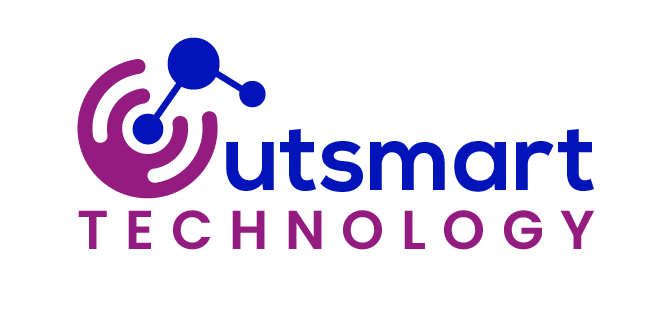Payroll Guide: Key Functions, Importance, Compliance & Trends Managing payroll is one of the most critical functions of Human Resources (HR) and finance departments in any organization. From calculating employee wages to ensuring compliance with tax laws, payroll plays a fundamental role in business operations. In this comprehensive guide, we will explore what payroll is, its key functions, and why it is crucial for HR management. We will also discuss payroll compliance, common challenges, and emerging trends shaping the future of payroll management. Whether you are an HR professional, business owner, or finance executive, this guide will help you understand payroll in depth. What Is Payroll? Payroll refers to the process of calculating, distributing, and managing employee compensation, including salaries, wages, bonuses, and deductions. It ensures that employees are paid accurately and on time while maintaining compliance with labor laws and tax regulations. Payroll is a crucial function in any organization, as it directly affects employee satisfaction, company finances, and legal compliance. An efficient payroll system not only streamlines payments but also enhances workforce productivity and morale. Key Payroll Terms Gross Pay: The total earnings before any deductions. Net Pay: The amount an employee takes home after deductions. Payroll Taxes: Deductions including income tax, social security, and Medicare. Deductions: Other withholdings like retirement contributions, health insurance, and wage garnishments. Key Functions of Payroll A well-managed payroll system is responsible for multiple tasks that go beyond paying employees. Here are the key functions of payroll: 1. Employee Compensation Processing The primary function of payroll is to calculate and process employee salaries based on their working hours, contract agreements, or commission structures. This includes: Fixed salaries for full-time employees Hourly wages for part-time or contractual workers Overtime payments and bonuses 2. Payroll Tax Calculation and Compliance Organizations must withhold and pay payroll taxes in compliance with local labor laws. Payroll ensures: Accurate tax deductions from employee wages Timely remittance of taxes to government agencies Compliance with labor laws to avoid penalties 3. Benefits and Deductions Management Payroll integrates with employee benefits programs, managing deductions for: Health insurance and retirement contributions Bonuses and incentives Voluntary deductions like savings plans 4. Record-Keeping and Reporting Payroll departments maintain detailed records of employee compensation, tax filings, and benefits, ensuring transparency and compliance with labor regulations through HRMS payroll solutions. This data is essential for: Internal audits Tax reporting and filings Employee financial documentation 5. Payroll Compliance and Legal Adherence Payroll professionals must stay updated on labor laws to ensure fair wage payments, tax deductions, and statutory benefits. This includes: Minimum wage laws Overtime regulations Data protection and confidentiality Why Payroll Is Important in HR Management Payroll is a key component of HR because it directly influences employee morale, financial planning, and company compliance. Here’s why payroll is crucial: 1. Ensures Employee Satisfaction Employees expect timely and accurate payments. A well-functioning payroll system: Boosts employee trust and motivation Enhances productivity and loyalty Reduces complaints related to salary errors 2. Maintains Legal Compliance Payroll errors can lead to: Legal penalties for tax non-compliance Labor law violations and lawsuits Reputational damage for the company 3. Improves Financial Planning Accurate payroll records help businesses: Forecast labor costs Optimize budgeting for salaries and benefits Make informed financial decisions 4. Supports Business Growth A structured payroll system ensures that: New employees are on boarded smoothly Payroll scalability matches business expansion HR teams focus on talent management instead of payroll issues Payroll Compliance: What Businesses Need to Know Payroll compliance refers to adhering to labor laws, tax regulations, and employee benefit policies. To ensure compliance, businesses must focus on: 1. Tax Withholding and Payments Employers must deduct and pay: Income tax based on employee salaries Social security and health insurance contributions Pension fund deductions where applicable 2. Minimum Wage and Overtime Rules Every country has laws governing: Minimum hourly wages Overtime pay for extra working hours Holiday and leave entitlements 3. Data Security and Confidentiality Payroll involves sensitive employee information. Organizations must: Use secure payroll software Ensure compliance with data protection laws Limit payroll data access to authorized personnel 4. Payroll Record-Keeping Government regulations require businesses to maintain payroll records for a specific duration. These records should include: Employee payment history Tax filings and deductions Benefit contributions and bonuses Challenges in Payroll Management Even with automated systems, payroll management presents various challenges, including: 1. Tax and Compliance Risks Staying compliant with ever-changing tax laws can be complex. Errors in tax filings can result in penalties and legal consequences. 2. Payroll Processing Errors Manual errors in payroll can lead to: Incorrect salary payments Tax miscalculations Delayed wages and employee dissatisfaction 3. Managing a Remote Workforce With the rise of remote work and global hiring, payroll teams must handle: Different tax regulations across countries Currency exchange complexities Varying benefits and compensation structures 4. Data Security and Fraud Risks Payroll fraud and cyberattacks are major risks. Businesses must implement secure payroll processing systems to prevent data breaches. Future Trends in Payroll Management Payroll management is evolving with technology and automation. Here are the emerging trends shaping the future: 1. Payroll Automation and AI Integration AI-powered payroll systems can: Automate tax calculations and compliance checks Detect payroll discrepancies Reduce manual errors and processing time 2. Cloud-Based Payroll Systems More companies are adopting cloud-based payroll platforms for: Easy access to payroll data from anywhere Enhanced security and data backup Scalability for growing businesses 3. Real-Time Payroll Processing Unlike traditional monthly payroll cycles, businesses are shifting to: Instant salary disbursements On-demand payments for gig workers Flexible payroll scheduling 4. Integration with HR and Accounting Systems Modern payroll software integrates with HRMS and payroll software for employee benefits and leave tracking: HR management tools for employee benefits and leave tracking Accounting platforms for financial reporting and audits Conclusion Payroll is more than just salary processing—it’s a critical function that ensures employee satisfaction, legal compliance, and financial stability. A well-structured payroll system helps businesses manage compensation efficiently, reduce compliance risks, and streamline HR operations. As payroll technology continues to
Choosing the Best HR Software Company for Your Growing Business As a startup, you are likely focusing all your energy on developing your product, building a team, and securing your first customers. One aspect of your business that may not seem like a priority, yet is crucial to your success, is human resource management. As your company grows, HR tasks—such as payroll, employee records, hiring, and compliance—become increasingly complex and time-consuming. That’s where HR software comes into play. The right HR software for startups helps automate and streamline HR functions, saving time and ensuring compliance. In this blog, we will explore the reasons why HR software for startups is essential, the key features to look for in an HR system, and highlight some of the best HR software solutions available for growing businesses. What is HR Software and Why Do Startups Need It? HR software is a suite of tools designed to automate and streamline the various human resource tasks required to manage employees efficiently. These tasks can range from payroll management and recruitment to performance tracking, benefits administration, and compliance monitoring. For startups, where time and resources are limited, HR software for startups plays a pivotal role in freeing up HR teams to focus on higher-value activities while automating repetitive administrative tasks. Startups are often lean, with small HR teams (or even just one person handling everything). Without the right tools, HR management can become chaotic, leading to errors, inefficiencies, and delays in key processes like onboarding, payroll, and employee feedback. By implementing the right HR software solutions, startups can optimize HR tasks, enhance employee satisfaction, and ensure smooth scaling as they grow. Why Startups Should Invest in HR Software The benefits of adopting HR software solutions are vast, especially for startups. Here are several reasons why HR software should be at the top of your list of business priorities: 1. Streamlined HR Operations Without HR software, many of your HR processes—such as payroll, benefits, and employee records—require manual input, leading to inefficiencies and increased chances for errors. HR software automates these tasks, significantly reducing the administrative workload. By automating routine tasks, HR software solutions help streamline HR operations, allowing your team to focus on strategic initiatives that drive business growth. 2. Increased Accuracy and Reduced Errors HR processes like payroll and tax calculations are prone to errors when managed manually. HR software solutions reduce the chances of human error by automating calculations and ensuring that all data is accurate and up to date. This ensures employees are paid correctly, taxes are filed appropriately, and no compliance issues arise. With HR software for startups, your business can eliminate the risk of costly mistakes. 3. Time-Saving Recruitment and Onboarding Hiring and onboarding are two of the most time-consuming aspects of HR, especially when done manually. HR software for startups offers tools like applicant tracking systems (ATS), which automate the recruitment process by helping you post jobs, track applicants, schedule interviews, and communicate with candidates. Additionally, onboarding tools allow new hires to complete necessary paperwork, access training materials, and familiarize themselves with company culture before their first day. This ensures that your startup can recruit top talent quickly and onboard them efficiently. 4. Compliance and Risk Management Compliance with labor laws and regulations is critical for every business, especially startups that may not have the resources to keep up with ever-changing regulations. HR software solutions often come with built-in compliance tools that automatically update the system with the latest legal changes. These tools ensure that your startup remains compliant with payroll tax laws, overtime regulations, and workplace safety requirements. Automated compliance features reduce the risk of legal penalties and help ensure your business stays on the right side of the law. 5. Employee Self-Service and Engagement One of the most valuable features of HR software is the employee self-service portal. This allows employees to manage their own HR tasks, such as accessing pay stubs, requesting time off, and updating their personal information. For startups, this lightens the workload for HR teams and allows employees to handle their own HR responsibilities. Furthermore, this feature boosts employee engagement and satisfaction by providing them with transparency and control over their work-life balance. Key Features to Look for in HR Software for Startups When evaluating HR software solutions for your startup, there are several important features to consider. Below are some of the most valuable features that the best HR management software should offer to meet your startup’s needs: 1. Payroll Automation Payroll processing can be a complex and time-consuming task, especially when managing taxes, deductions, and employee benefits. HR software should automate these processes to ensure accurate and timely payroll processing. Look for HR software solutions that integrate tax calculations, direct deposit features, and regulatory compliance tools, reducing the risk of errors and saving valuable time. 2. Applicant Tracking System (ATS) As a startup, hiring top talent is essential to your success. An ATS within your HR software allows you to efficiently manage the recruitment process from job postings to interview scheduling. With an ATS, your startup can streamline the entire hiring process, ensuring that no candidate slips through the cracks and that you quickly find the best fit for your open positions. 3. Time and Attendance Tracking Tracking employee attendance is essential to managing payroll, productivity, and employee performance. HR software for startups with built-in time tracking tools allows you to easily monitor employee hours, manage overtime, and ensure that employees are adhering to work schedules. This helps prevent time theft and ensures that payroll remains accurate. 4. Performance Management Employee performance is a key indicator of your startup’s success. HR software solutions that include performance management features help track employee goals, provide regular feedback, and monitor progress. This enables startups to foster a culture of continuous improvement and growth, which is crucial as your team expands. 5. Employee Benefits Management Offering employee benefits is an essential part of creating a positive work environment and retaining top talent. HR software for

